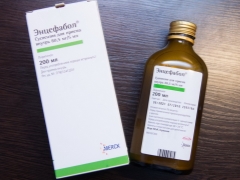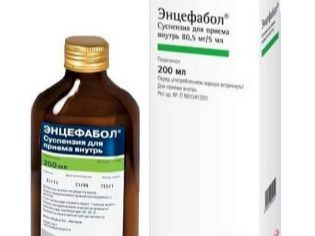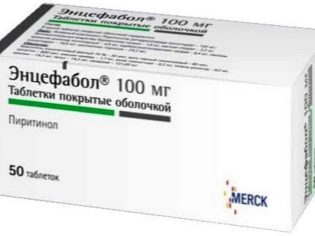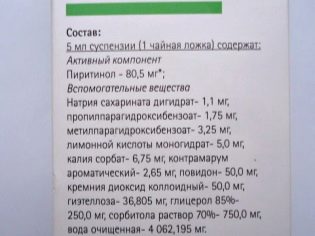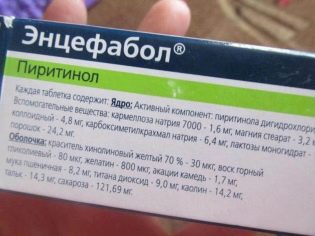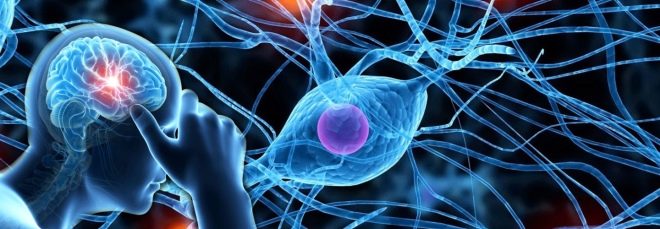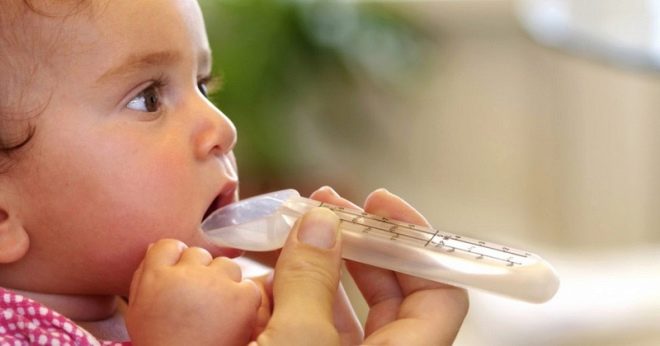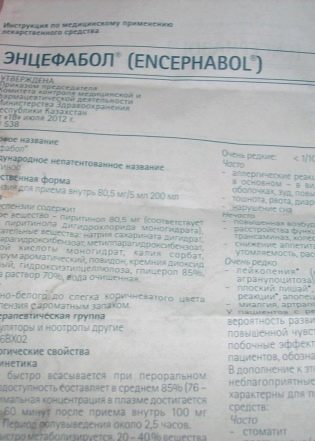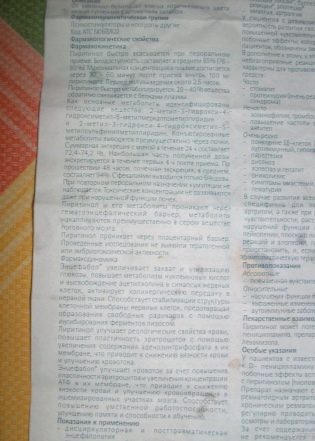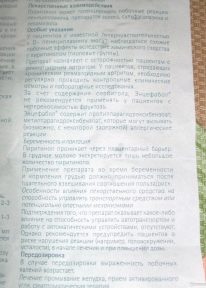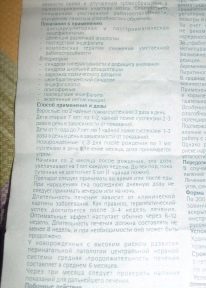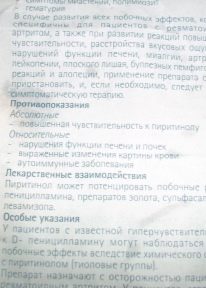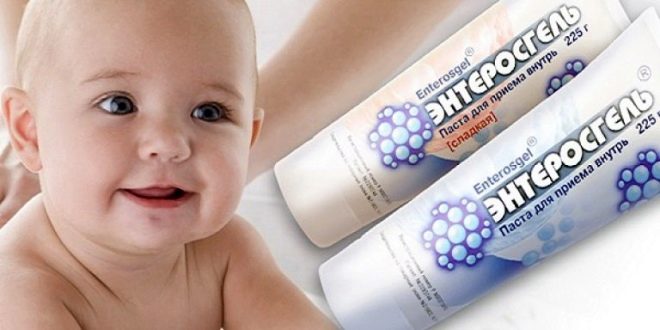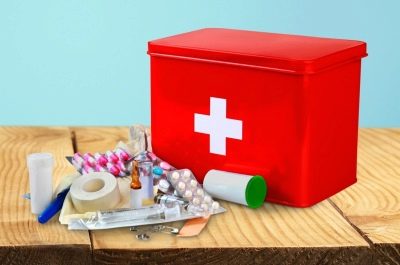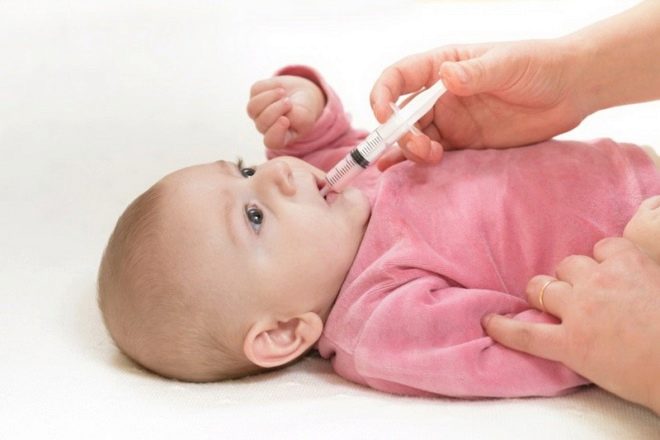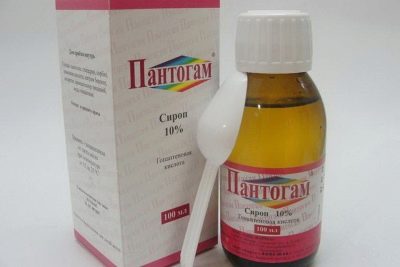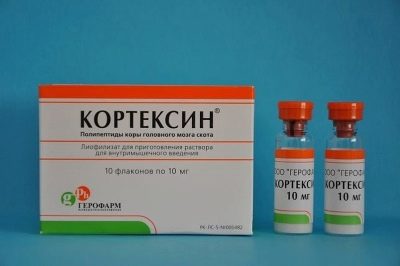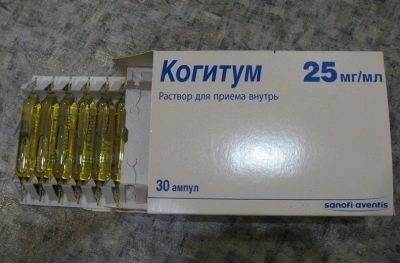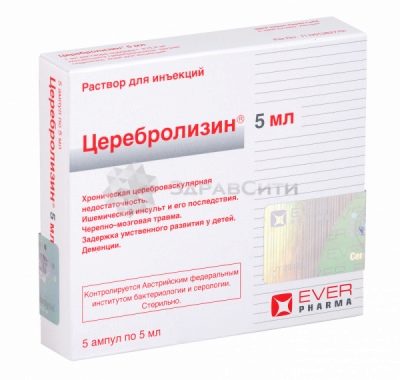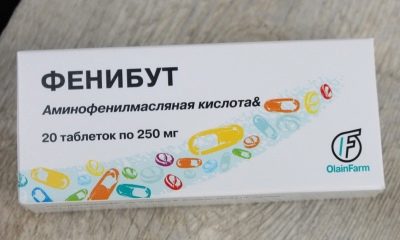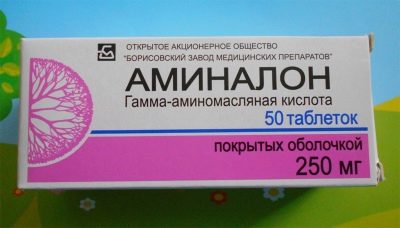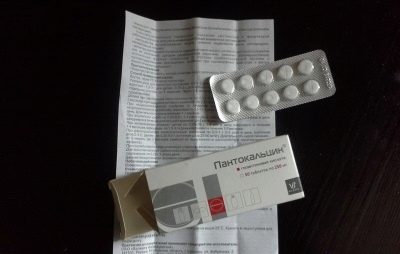Encephabol for children: instructions for use
Many diseases of the central nervous system and neurological diseases are treated with the help of nootropic drugs. These drugs include Encephabol. The drug is in demand in adult patients with vascular disorders, dementia and atherosclerosis. It is also often used in pediatric practice, prescribing for developmental problems, impaired mental functions, nerve cell damage and other indications.
Release form
There are two dosage forms of encephabol:
- Suspension. It is sold in a bottle of dark glass, inside which is 200 ml of a viscous liquid. It has a pleasant aroma, sweet taste and milky white shade.
- Pills. They are packed in blisters of 10 pieces, and one pack contains 50 tablets. They have a biconvex round shape and a shiny yellow shell.
Composition
The active component of both forms of "Encephabol" is a substance called "pyritinol". It is contained in the drug in the form of monohydrate dihydrochloride. Every 5 milliliters of suspension are a source of 100 mg of such compounds. The same amount of pyritinol is contained in one tablet.
In addition, povidone, sodium saccharinate, glycerol, potassium sorbate, natural essence and some other inactive components are added to the suspension. Auxiliary ingredients of solid form are talc, mountain wax, milk sugar, acacia gum and other substances, the list of which can be specified on the package.
Operating principle
"Encephabol" primarily affects the metabolic processes in the brain tissue. In particular, under the action of the drug, glucose is better absorbed by nerve cells, and the metabolism of nucleic acids is accelerated. In addition, under the influence of pyritinol, nerve impulses are transmitted better, and the release of neurotransmitters is activated.
Due to the fact that the drug is able to stabilize neural membranes, brain cells become more resistant to the action of free radicals and other damaging factors. The drug also has a positive effect on blood flow in the brain, as it affects blood viscosity and certain characteristics of red blood cells (in particular, their plasticity). The use of "Encephabol" increases the efficiency of the central nervous system and improves mental functions (memory, attention, speech development and others).
Absorption of the active ingredient from the swallowed drug, both in the form of a suspension and in tablet form, occurs fairly quickly. The bioavailability of pyritinol is 85%, and its maximum blood levels are recorded 0.5–1 hours after administration. Excretion of the active ingredient occurs mainly in the urine. Most of the medication leaves the human body within 48 hours. Moreover, even if the patient is given Encephabol for a long time, for example, for several months, he will not accumulate in nerve and other tissues.
Indications
In childhood "Encephabol" is in demand:
- with hyperactivity syndrome;
- to eliminate the effects of meningitis or encephalitis;
- with hypoxic, bilirubin or other encephalopathy;
- in case of apathy, headaches, irritability and other symptoms of cerebroasthenic syndrome;
- with delayed mental or speech development;
- for attention disorders;
- to eliminate the toxic effect on the brain of various toxic substances;
- brain contusion, traumatic brain injury, brain concussion and other traumatic injuries;
- with oligophrenia;
- with large physical or intellectual overloads.
From what age is appointed?
"Encephabol" in suspension is allowed even for infants. According to the instructions, this form of medicine is prescribed to newborns from the third day of life.
The drug in tablets is used in the treatment of children over 7 years old, but if there are problems with swallowing, a seven-year-old child or an older patient can continue to be given a suspension, because the tablet cannot be divided into parts.
Contraindications
The drug is forbidden to use in case of hypersensitivity to its active or any auxiliary component. There are also many relative contraindications to taking the drug, in the presence of which the expediency of treatment should be decided by an individual specialist. These include significant changes in peripheral blood, kidney disease, autoimmune diseases, myasthenia gravis, and severe liver disease. Suspension due to the presence of sorbitol in such “Encephabole” cannot be used in case of fructose intolerance.
Side effects
In some children, the drug provokes an increase in the excitability of the nervous system and may interfere with sleep, cause insomnia or anxious sleep. For this reason, medication should not be given in the evening. Sometimes the use of "Encephabol" becomes a cause of reduced appetite, vomiting, dizziness, loose stools, fatigue, disturbances in taste and other negative symptoms. When they appear, you need to consult a doctor.
Occasionally, a skin rash or other allergic reaction occurs on the medication, which requires immediate cessation of treatment.
Instructions for use
Suspension should be given to children either during meals or immediately after the morning or lunch meal. For dosing use a regular teaspoon (it holds 5 milliliters of liquid Encephabol) or some kind of measure from another medicine, for example, a plastic syringe from a febrifuge.
Tablets should be swallowed without damaging the shell. Breaking or splitting such Encephabol into halves is unacceptable. It is best to wash down the medication with clean water.
Dosages for children
The doctor should determine individual doses and treatment regimen for each small patient individually. To do this, the specialist takes into account the severity of the nervous system, the age of the child and the response to therapy. Newborns often give a suspension of 1 ml in one of the morning feedings. This dose is prescribed from the third day of life to 2 months. Then weekly daily dosage is increased by 1 ml, until the infant receives 5 ml of liquid Encephabol per day.
The dose of the suspension for a child older than one year is from 50 to 300 mg of the active ingredient (up to 600 mg from the age of seven). The drug is taken in the amount prescribed by the doctor once or divided into 2-3 doses.
If a child over 7 years old was prescribed "Encephabol" in solid form, then the drug is usually given 1-2 tablets per reception, one to three times a day.
How long to take?
The duration of treatment with Encephabolum is determined separately for each baby. In acute conditions, the therapeutic effect of the drug becomes noticeable already on the first day, therefore, the duration of therapy is small. With a chronic problem for the appearance of good results, Encephabol intake should be at least two months, since the effect of the medication will be noticeable at least in 2-4 weeks from the beginning of the application.
If the suspension is discharged to a newborn with brain damage or with a high risk of neurological disorders, usually the course of therapy lasts six months.However, after three months, additional examinations of the child are needed, after which it is determined whether to continue taking Encephabol or whether it is already possible to refuse such treatment.
Overdose
Taking “Encephabol” in higher doses can cause diarrhea, central nervous system irritability, an attack of vomiting, fever, nausea and other symptoms. To eliminate them, you need to wash the baby's stomach and give a sorbent.
Interaction with other drugs
You can not use together "Encephabol" and sulfasalazine, as well as penicillamine preparations or gold preparations. Such combinations of drugs threaten the occurrence of side effects. Combining "Encephabol" in pills or suspension with other drugs (for example, with magnesium) is not prohibited.
Terms of sale
To buy any form of drug in a pharmacy, you first need to visit a specialist, as "Encephabol" is sold by prescription. For one bottle of suspension, you need to pay from 750 to 900 rubles, and the average price of a pack of tablets is about 1000 rubles.
Storage conditions
Store any of the forms of "Encephabol" at home should be at a temperature of + 20 + 25 degrees in a dry place. The shelf life of tablets and suspensions is 5 years.
The drug (especially the liquid form) should be safely hidden from small children.
Reviews
On the use of "Encephabol" there are mostly good reviews. The advantages of liquid medicine are the possibility of treating infants, high efficiency and pleasant taste. The disadvantages of the suspension include its high cost, and some babies after taking this drug have unpleasant symptoms (rash, nausea, and others).
Among the positive characteristics of the tablets, many parents note their effective action, sweet taste of the shell, small size and good tolerance. However, in some reviews note the occurrence of adverse reactions, and the price of the drug is called a tall.
Analogs
Since other drugs based on pyritinol are not available, then other nootropic drugs are capable of replacing Encephabol, because they have a similar effect on the central nervous system. If an analogue suspension is needed, the doctor will recommend:
- Syrup "Pantogam», which contains hopantenic acid and is used from birth. It is able to protect nerve cells from many negative factors and improve metabolic processes in brain tissue. In addition, this medication has an anticonvulsant effect.
- «Cortexin for children». This is a nootropic drug in injections, which is also allowed at any age and can be used even in premature babies. It works due to low molecular weight peptides that protect neurons, improve their functions, and promote the restoration of brain tissue in case of damage. It is prescribed for speech underdevelopment, cerebral palsy, encephalopathy, epilepsy and other neurological problems.
- «Kogitum». This drug in ampoules includes acetylamino-succinic acid, which has a positive effect on the central nervous system. It is used for asthenia, neurosis, developmental problems (PID, ZRR), hysteria, mental retardation and other pathologies. The solution is given to children over 7 years old to drink, but some neuropathologists prescribe it to patients younger than seven years old, adjusting the dosage individually.
- «Cerebrolysin». Such a drug based on peptides, which have a low molecular weight, has a specific effect on brain tissue, so it is used for injuries, depression, ADHD and developmental delays. Cerebrolysin injections are safe even for babies, so they are prescribed from birth.
To replace the drug in tablets is capable of one of these drugs, also represented by the solid form:
- «Phenibut». The basis of such tablets is aminophenyl butyric acid, due to which the drug has a positive effect on blood flow and metabolic processes in the brain, as well as on the speed of transmission of nerve impulses. It also helps eliminate anxiety, fears, or asthenia. Children are prescribed from the age of three.
- «Aminalon». The effect of this drug causes gamma-aminobutyric acid, which is one of the neurotransmitters. Tablets are used for various brain damage, developmental delay, headaches, vestibular disorders. They are prescribed to children older than 1 year.
- "Pantokalcin". Such a nootrope based on hopantenic acid provides protection for neurons and improves their metabolic processes, which is used in traumatic brain injuries, neuroinfections and other problems. In addition, this medicine has an anticonvulsant effect and is used for enuresis. He is discharged from the age of 3.
On the neurological problems in children, see the following video.
